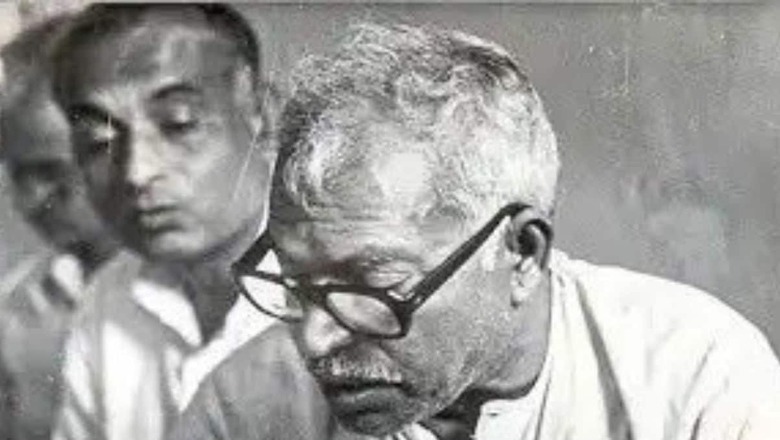
views
Former Bihar CM Karpoori Thakur will be awarded Bharat Ratna posthumously.
Born on January 24, 1924, Thakur served as the Chief Minister of Bihar from December 1970 to June 1971 (Socialist Party/Bharatiya Kranti Dal), and from December 1977 to April 1979 (Janata Party).
“The President has been pleased to award Bharat Ratna to Shri Karpoori Thakur (posthumously),” Rashtrapati Bhavan’s statement said.
ALSO READ: From C Rajagopalachari To Former Bihar CM Karpoori Thakur, Here’s A List of Recipients of Bharat Ratna
Prime Minister Narendra Modi also took to the microblogging site X and said he was “delighted that the Government of India has decided to confer the Bharat Ratna on the beacon of social justice, the great Jan Nayak Karpoori Thakur Ji”.
“I am delighted that the Government of India has decided to confer the Bharat Ratna on the beacon of social justice, the great Jan Nayak Karpoori Thakur Ji and that too at a time when we are marking his birth centenary. This prestigious recognition is a testament to his enduring efforts as a champion for the marginalized and a stalwart of equality and empowerment,” PM Modi said in an X post.
“His unwavering commitment to uplift the downtrodden and his visionary leadership have left an indelible mark on India’s socio-political fabric. This award not only honours his remarkable contributions but also inspires us to continue his mission of creating a more just and equitable society,” PM Modi wrote in an X post,” he added.
I am delighted that the Government of India has decided to confer the Bharat Ratna on the beacon of social justice, the great Jan Nayak Karpoori Thakur Ji and that too at a time when we are marking his birth centenary. This prestigious recognition is a testament to his enduring… pic.twitter.com/9fSJrZJPSP— Narendra Modi (@narendramodi) January 23, 2024
Who is Karpoori Thakur?
Thakur was popularly known as ‘Jan Nayak’ (people’s hero) for championing the cause of the backward classes.
His tenure as Bihar’s chief minister in the 1970s proved to be groundbreaking, especially for the deprived sections of society. He introduced the “Karpoori Thakur Formula” for reservation, which aimed to ensure equitable representation for backward classes in government services.
In November 1978, Thakur implemented a 26% reservation for backward classes in Bihar, a move that set the stage for the Mandal Commission recommendations in the 1990s. This policy not only empowered the backward classes but was responsible for the rise of regional parties that changed the face of politics in the Hindi heartland.
Influenced by nationalistic ideas as a student, Thakur joined the All India Students Federation and left his graduate college to join the Quit India Movement. He spent 26 months in prison for his participating in the Indian independence movement.
Thakur became a member of the Bihar Vidhan Sabha in 1952 from Tajpur constituency as a Socialist Party candidate. He served as a minister and Deputy Chief Minister of Bihar, before becoming the first non-Congress socialist Chief Minister of Bihar in 1970.
















Comments
0 comment